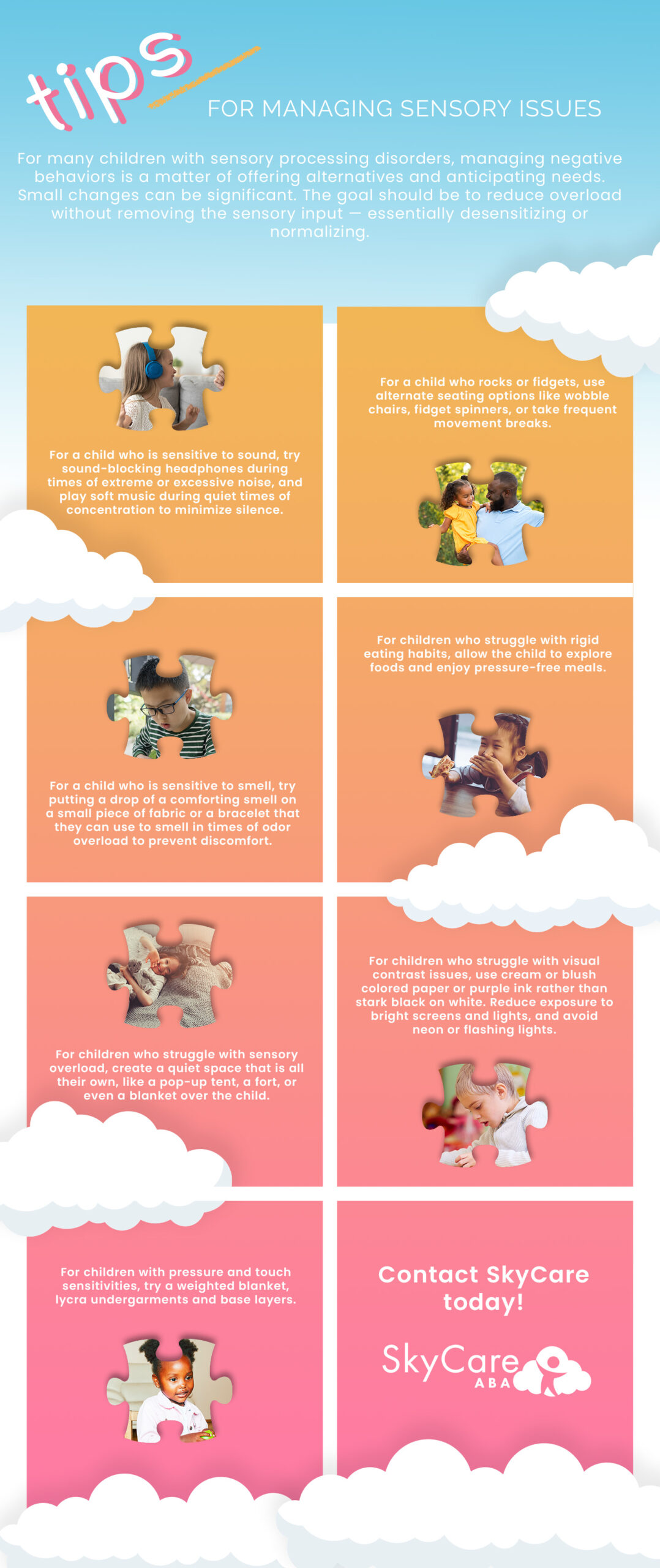When it comes to managing a child on the spectrum, the challenges faced will vary based on a variety of factors, including the severity of symptoms or limitations, the functional abilities of the child, and the impact on the child’s family. Since no two children on the spectrum will present the same way, it is difficult to anticipate and plan for challenges in a general manner, but will be specific to each child. In today’s post, we’ll discuss some of the more common challenges that children on the spectrum and their families face and some solutions on how to better deal with them.
Safety Concerns
A general consensus of families and therapists will yield similar results by way of the biggest challenges of managing the autistic child is safety concerns. Regardless of the cognitive impact of autism experienced, when it comes to children, safety is always the biggest concern, and autism only makes it more challenging. Safety concerns for the child on the spectrum include self-harm behaviors, judgment and problem solving impairment, altered sense of pain and temperature, rigid eating habits, and wandering. While not all children on the spectrum experience all of these concerns, the safety of the autistic child should include additional measures. Some ideas on how to overcome these challenges include having plans in place, anticipating needs based on their normal behavior, making their entire care team aware, and implementing safety devices such as additional door locks, alarms, and working with an ABA therapist to reduce or eliminate some behaviors such as self-harm and wandering.
Functional Concerns
Another common challenge of parents and caregivers of children on the spectrum is functional concerns. Many autistic children experience some form of functional limitations ranging from inability to speak or walk to communication and motor skill limitations. This leaves caregivers in a state of always needing to have eyes on the autistic child and help them perform many tasks. Working with an occupational and speech-language therapist may help the child develop some basic functional skills that will allow them to build fine and gross motor and communication skills to better overcome challenges.
Sensory Processing Issues
Sensory processing issues become a challenge when interacting in the environment beyond the home. At home, many parents have discovered ways to manage noise, light, and temperature processing limitations, but in public, it becomes much more difficult to control the environment. Attending sensory-friendly events and businesses helps, and educating the people or groups you child regularly encounters can also be super helpful. Check out this chart for some other useful tips.
Social Interaction and Communication
Depending on the severity, social interaction and communication limitations are challenges that make it difficult for the child on the spectrum to interact in public and have their needs met by caregivers. Communication issues can be barriers to education, who care can be provided by, and a host of other issues. By involving everyone in the care team in communication efforts, utilizing PECS, and enrolling your child in speech-language therapy can help.

There are many challenges that children on the spectrum and their families face when managing their symptoms. However, facing these challenges and overcoming them can be just as “easy” as managing any childhood concern. With the right support networks, tools, and therapists, your child can find their full potential and reduce some of the concerns discussed here. A combination of applied behavior analysis (ABA) treatment, coupled with occupational and speech therapy, and the support of social workers, educators, and community resources and support groups, your child can discover the safety they deserve and develop the skills they need. To find your village and discover new ways to manage the challenges of autism, connect with us online to learn more and reach out to us to enroll today!

